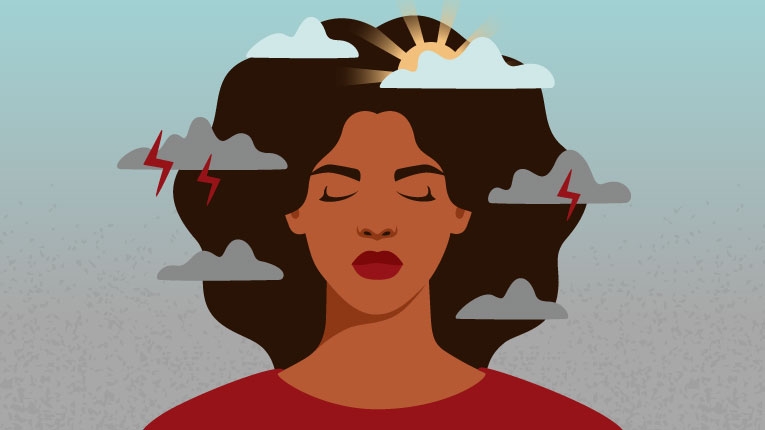Top 7 Reasons People File for Bankruptcy and How to Avoid It

Bankruptcy provides relief for people who are overwhelmed by debt. Common reasons for seeking protection from creditors include medical debt, credit card bills, a lost job, divorce, or a personal crisis. Because bankruptcy may involve the court-ordered liquidation of your assets and remain on your credit report for several years, bankruptcy is often a measure of last resort.
Why do people file for bankruptcy? Every story is unique, but most of them share at least some contributing factors. Here’s a closer look at some of the most common reasons for personal bankruptcy.
Top 7 Reasons People File for Bankruptcy
Most bankruptcies happen for one reason: too much debt and too little income. In 2022, there were 374,240 non-business bankruptcy filings in the U.S., each with its own story – and, most likely, multiple contributing causes behind it. Someone took on a sizable mortgage, then lost their job. Another was injured in a car accident and ended up with medical expenses and a prolonged leave of absence from work without pay.
Though there are a million possible reasons why people might file bankruptcy, the following contributing factors are commonly cited.
1. Loss of Income
Job loss, pay cuts, disability, and business failure can all leave people unable to keep up with their monthly debt payments. The financial fallout of unemployment isn’t limited to lost wages: Many who lose their jobs pay high insurance premiums through COBRA.
2. Medical Expenses
A Kaiser Family Foundation Health Care Debt Survey found that 41% of adults had debt caused by medical or dental bills, and nearly one in five of those with medical debt thought they would never be able to pay it off. Nearly half who owed medical debt had used up all or most of their savings, while 40% took an extra job or worked more hours; 41% increased credit card debt; and 37% skipped or delayed paying other bills.
In a study published in the American Journal of Public Health, medical expenses and medical problems causing work loss contributed to 66.5% of bankruptcies.
3. Unaffordable Mortgage
Mortgages are often the largest debt people carry—and the most consequential. Defaulting on a mortgage could mean losing your home and your equity in a foreclosure.
Filing for bankruptcy can put a pause on foreclosure activities. Although bankruptcy may not stop a foreclosure altogether, it may provide you the option of eliminating mortgage debt if you give up your home or avoiding foreclosure by enacting a repayment plan.
4. Student Loans
According to the Federal Reserve, four in 10 people who attended college took out student loans to fund their education. Among people who had outstanding debt from their own education in 2022, the median student loan balance was between $20,000 and $24,999.
Given that student loan payments have resumed and there’s still uncertainty about additional forgiveness, some people carrying student loan debt may have difficulty meeting other debt obligations or even basic living expenses.
5. Overwhelming Debt
Debt can easily become unmanageable. While overspending is a possible culprit, debt also adds up when you’ve used student loans to pay for college, financed a car so you can commute to work, or used credit cards to cope with the rising cost of necessities.
6. Helping Friends or Relatives
Helping loved ones in need is a kindness, but it can create financial problems if they’re unable (or unwilling) to repay you.
7. Divorce
Divorce is a major financial disruptor. Splitting a single household into two may double your monthly expenses (without increasing your monthly income). Shouldering legal costs, dividing assets, and untangling joint debt can add to financial stress. Child and spousal support often feel like too little for the recipient and too much for the payer. And for many, divorce isn’t the beginning of financial trouble: Money difficulties can be both a symptom and a cause of marital problems.
Strategies to Help Avoid Bankruptcy
Bankruptcy is an extreme measure that can have far-reaching consequences for your credit score and financial wellbeing. Before you decide to file for bankruptcy, first consider these other strategies:
Financial DIY
Getting a firm grip on your financial situation is a good place to start. Fully understanding your income, expenses, assets, and debts may help you find a way to avoid bankruptcy, or, if not, give you information to make solid decisions going forward. Get started by:
Looking for ways to cut your costs
Boosting your income with a second job or side hustle
Selling property to raise cash
Finding a strategy to pay down debt
Credit Counseling
You don’t have to review your finances alone. A nonprofit credit or debt counseling service can work with you to set a budget and find a strategy for repaying your debt. Accredited nonprofit counseling services work with you at a low cost and may offer some advice for free. Find an accredited agency with certified credit counselors, such as through the National Foundation for Credit Counseling.
Debt Management Plan
As part of their service, a credit counseling agency may be able to help you negotiate lower interest rates, reduce penalties, and establish manageable monthly payments by setting up a debt management plan. Generally, a credit counselor speaks to each creditor on your behalf to try to negotiate a repayment plan that fits your budget.
Debt Consolidation
Consolidating debt generally means taking out a single loan to pay down outstanding higher-interest debts. Although a debt consolidation loan doesn’t erase your existing debts, it can simplify your finances and make it easier to manage your monthly payments. If you’re currently paying high interest rates on credit cards, a debt consolidation loan may save you money on interest as well. For this approach to work, it's important not to drive up debt again on those credit cards you just consolidated.
Negotiate with Creditors
You can contact creditors on your own to let them know your circumstances and try to negotiate a modified payment plan. Although creditors aren’t obligated to work with you, many will offer temporary hardship assistance, workouts, and lump sum settlements depending on the type and contractual age of the account. Keep in mind, reducing your debt obligation by settling with a creditor for less than the full balance owed will have a negative impact on your credit score,
Debt Settlement
Debt settlement involves settling your debts for less than you owe, often using the services of a debt settlement company. While debt settlement may lower your debt by as much as 50% to 80%, debt settlement companies charge significant fees, and the process could damage your credit score. The Consumer Financial Protection Bureau is a good place to understand the pros and cons of proceeding with a debt settlemen company. Keep in mind, other types of creditor settlements with may also negatively impact your credit scores (settling for less than the full balance).
The Bottom Line
If you’re struggling with overwhelming debt, experienced a dramatic loss of income, or facing any other reason causing you to consider filing for bankruptcy, ask for help. You may be able to negotiate with your creditors or take advantage of credit counseling or use a debt management plan that can put your finances back on track. If you’ve determined you’re unable to repay your debts and decide to move foward with bankruptcy proceedings, it’s a good idea to contact a qualified attorney who can help guide you through the process.
Frequently Asked Questions
How does bankruptcy work?
Bankruptcy is a complex process. Generally, after demonstrating you can’t repay your debts and completing some credit counseling, if you choose to move forward you’ll need to decide whether to proceed with a Chapter 7 or Chapter 13 bankruptcy filing. While both types of bankruptcy relieve debt in different ways, they both can also help provide relief from unsecured debt (such as personal loans or credit cards), put a stop to foreclosure or repossession of your home or car, as well as end wage garnishments, utility shut-offs, and debt collector activity. In both cases, you can usually expect to pay your own attorney fees and court costs.
To ensure you receive proper guidance, it’s probably best to discuss your financial situation with a bankruptcy attorney, as well as the rules, regulations and possible options and outcomes you may face.
Does bankruptcy erase all debts?
A bankruptcy can erase all your debts, but it doesn’t always. Nondischargeable debts include tax claims, child or spousal support, debts for willful or malicious injury, government fines, and some condominium or cooperative housing fees. Debts that are not listed in bankruptcy court filings may not be included in the discharge.
Will bankruptcy ruin your credit score?
A bankruptcy significantly affects both your credit score and credit report. Bankruptcies appear in the public records section of your credit report for up to 10 years from the date of discharge. Your creditors may also mark any accounts discharged in bankruptcy as “included in bankruptcy.” This information can stay in your credit file for seven years.
How many times can you file bankruptcy?
There are limitations to how often you can receive a discharge of debts through bankruptcy. It’s important to discuss your situation and options with a bankruptcy attorney before proceeding.




